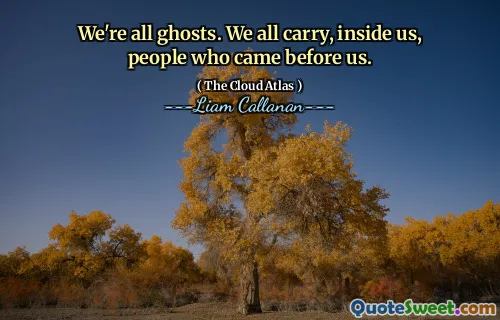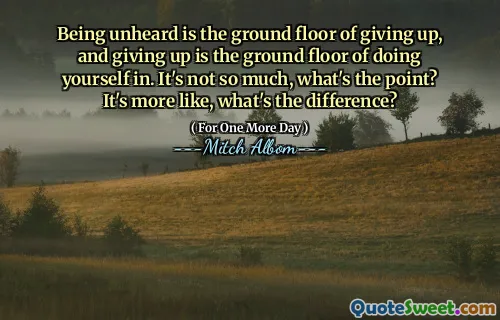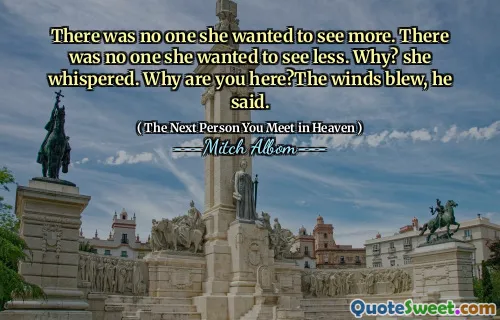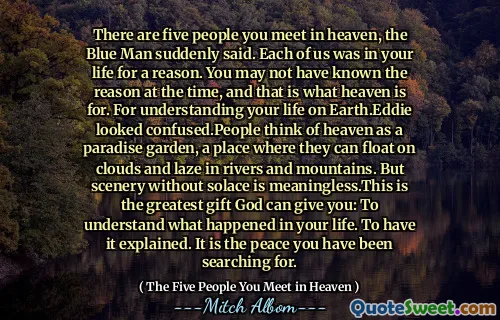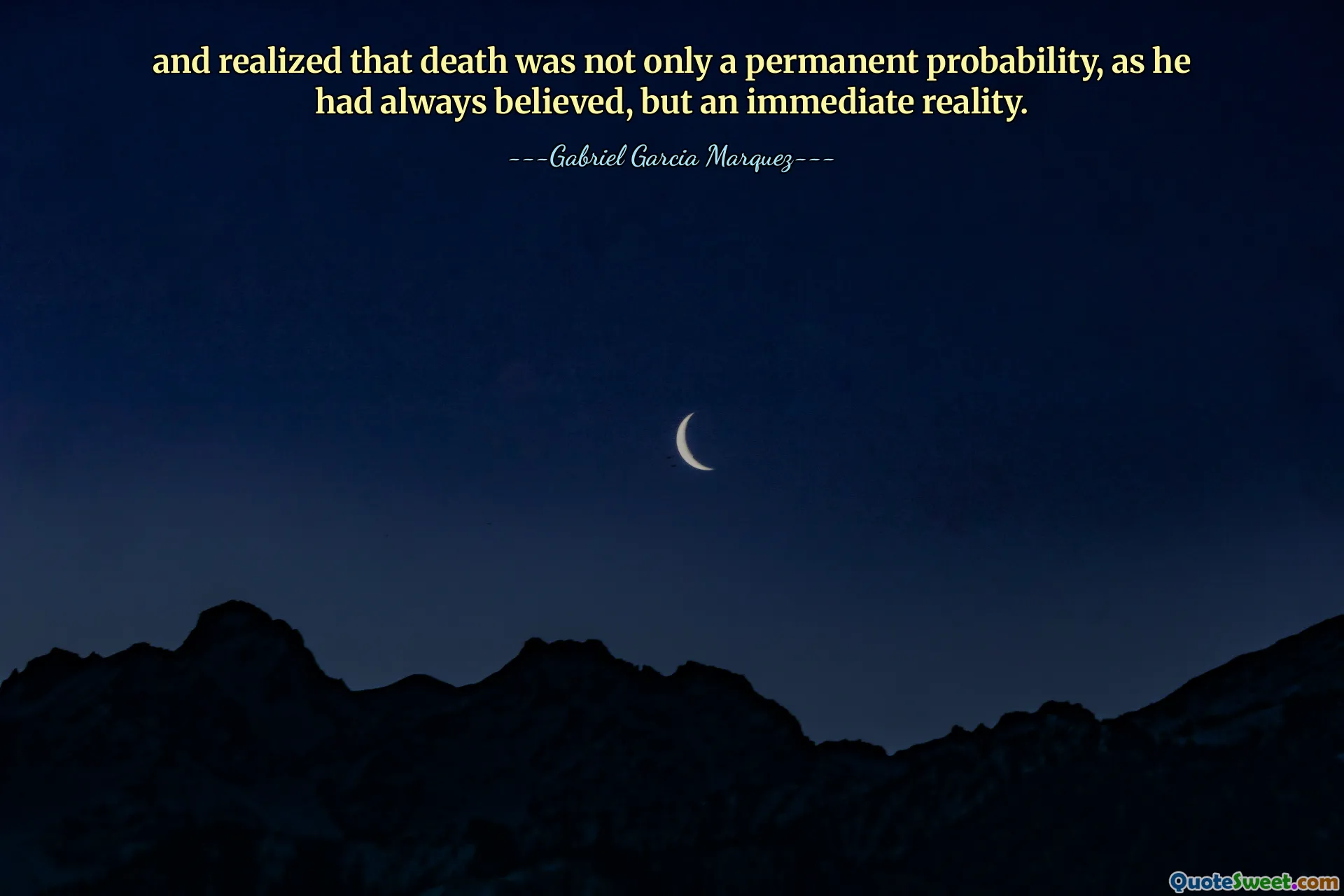
and realized that death was not only a permanent probability, as he had always believed, but an immediate reality.
This quote invites profound contemplation on the nature of mortality and human perception of death. The realization that death is not merely an eventual certainty but an immediate and tangible reality shifts the reader's understanding of existence. Throughout life, many tend to perceive death as a distant event, something to be feared or postponed, often relegated to the future or regarded as part of life's inevitable cycle. However, the insight presented here challenges that notion, emphasizing that death can suddenly become an imminent experience, making life itself more urgent and precious. It underscores the importance of awareness of mortality to truly appreciate the present moment and the transient nature of our existence.
This awareness can lead to a deeper appreciation of everyday life, fostering a sense of mindfulness and intentionality. It also confronts individuals with their fears and uncertainties, prompting a reassessment of priorities, values, and the way they choose to live. For some, such realizations might bring about a sense of despair; for others, they can serve as motivation to live authentically and fully, recognizing that every moment is finite and meaningful.
Philosophically, this reflection taps into existential themes that question the essence of life and death, challenging the perception of the inevitable as something future-oriented and highlighting its presence in the immediacy of our experience. Accepting death as an immediate reality could lead to greater compassion, humility, and a richer engagement with life's fleeting beauty.






